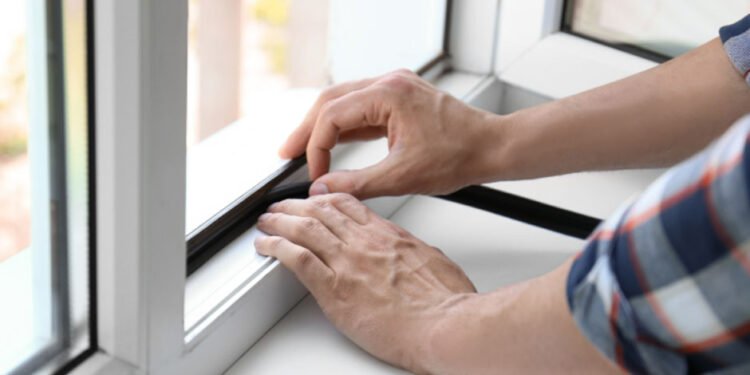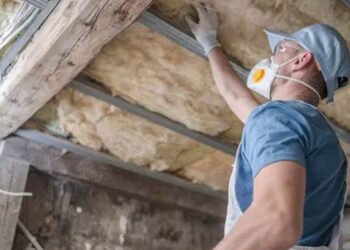Introduction
In today’s world, energy efficiency is more than just a buzzword; it is a fundamental aspect of sustainable living and building design. One of the key metrics that homeowners and builders should understand is the U-value, especially when selecting insulating windows. This article will delve into what U-value means, why it matters, and how to choose the best insulating windows for your needs.
Understanding U-Value
U-value is a measure of thermal transmittance. It quantifies how effective a building material is as an insulator and is expressed in watts per square meter Kelvin (W/m²K). In simpler terms, the lower the U-value, the better the material insulates against heat loss or gain.
When evaluating windows, the U-value specifically indicates how much heat escapes through the window over time. This measurement helps in understanding the energy efficiency of a window, allowing homeowners to make informed decisions about their investments.
Importance of U-Value in Energy Efficiency
The significance of U-value cannot be overstated when it comes to energy efficiency. Here are several reasons why understanding U-value is crucial:
- Energy Savings: Windows with lower U-values minimize heat loss during winter months and reduce heat gain during summer, leading to significant energy savings on heating and cooling costs.
- Comfort: Proper insulation ensures that indoor temperatures remain stable, contributing to overall comfort within the home.
- Environmental Impact: Reducing energy consumption decreases greenhouse gas emissions, making your home more environmentally friendly.
- Building Regulations: Many regions have specific building codes that require certain U-values for windows to ensure energy efficiency standards are met.
Factors Affecting U-Value
Several factors can influence the U-value of windows:
- Glazing Type: Double or triple glazing significantly improves thermal performance compared to single glazing.
- Frame Material: Different materials such as wood, vinyl, aluminum, or fiberglass affect overall thermal performance.
- Gas Fills: The use of inert gases like argon or krypton between panes can improve insulation properties.
- Low-E Coatings: These special coatings reflect heat back into the room while allowing light to pass through.
Understanding these factors can help consumers select windows with optimal thermal performance.
Types of Windows and Their U-Values
Windows come in various types, each with differing U-values:
- Single Glazed Windows: These typically have high U-values ranging from 4 to 5 W/m²K, making them less efficient.
- Double Glazed Windows: With two panes of glass, they generally have a U-value between 1.2 to 3 W/m²K.
- Triple Glazed Windows: Featuring three panes of glass, these windows can achieve remarkably low U-values, often around 0.8 W/m²K or lower.
When selecting windows, it is essential to consider how each type contributes to overall energy efficiency.
Choosing the Right Insulating Windows
When it comes to selecting insulating windows, keep these guidelines in mind:
- Assess Your Climate: Different climates may require different types of insulation properties.
- Look for Energy Ratings: Many regions provide energy ratings that indicate how well a window performs thermally.
- Consider Installation Quality: Even the best windows will perform poorly if not installed correctly; proper sealing and installation are crucial.
- Evaluate Long-Term Costs: Investing in high-quality windows may have higher upfront costs but will yield savings over time through reduced energy bills.
Engaging with reputable manufacturers like Wolfline Aluminium Doors & Windows can help ensure you are choosing high-quality products that meet your specific needs.
The Role of Frames and Glazing
The frame material plays a vital role in determining the overall U-value of a window system:
- Wood Frames: Excellent insulators but require regular maintenance.
- Vinyl Frames: Offer good insulation and low maintenance requirements.
- Aluminum Frames: Often have poorer insulation properties unless thermally broken but can be combined with other materials for improved performance.
- Composite Frames: These are designed to offer the best attributes of various materials while minimizing their drawbacks.
Glazing techniques also vary widely:
- Standard Clear Glass: Offers minimal insulation value.
- Low-E Coated Glass: Reflects infrared energy while allowing light transmission.
- Argon Gas Fill: Enhances insulation between glass panes.
By understanding these elements, homeowners can make better choices regarding their window selections.
Case Studies: Real-Life Applications
Examining real-life applications can provide valuable insights into how different window types perform under various conditions:
- A residential building in a cold climate opted for triple-glazed windows from Wolfline Aluminium Doors & Windows and reported a 30 percent reduction in heating costs after installation.
- A commercial office building implemented double-glazed units with low-E coatings and achieved substantial improvements in employee comfort levels due to reduced temperature fluctuations.
These examples highlight the practical benefits of choosing high-quality insulating windows based on informed decisions about their thermal properties.
Wolfline Aluminium Doors & Windows: A Quality Option
When considering high-quality insulating windows, Wolfline Aluminium Doors & Windows stands out as an excellent choice due to its commitment to innovation and performance. Their range includes options that cater specifically to different climatic requirements while maintaining aesthetically pleasing designs.
Wolfline’s products feature advanced glazing technologies and frame materials that provide exceptional thermal performance without compromising on style or durability.
Summary and Recommendations
Understanding U-value is essential for making informed decisions regarding insulating windows in your home or commercial property. By focusing on low U-values, considering various frame materials and glazing options, and engaging with quality manufacturers like Wolfline Aluminium Doors & Windows, you can enhance your home’s energy efficiency significantly.
Whether you are looking to reduce energy bills or create a comfortable living space for your family, investing in quality insulating windows pays dividends in both comfort and sustainability over time.
By following these guidelines and utilizing available resources effectively, you can ensure that you make choices that align with your values for efficiency and sustainability without sacrificing aesthetics or functionality in your home design choices.












